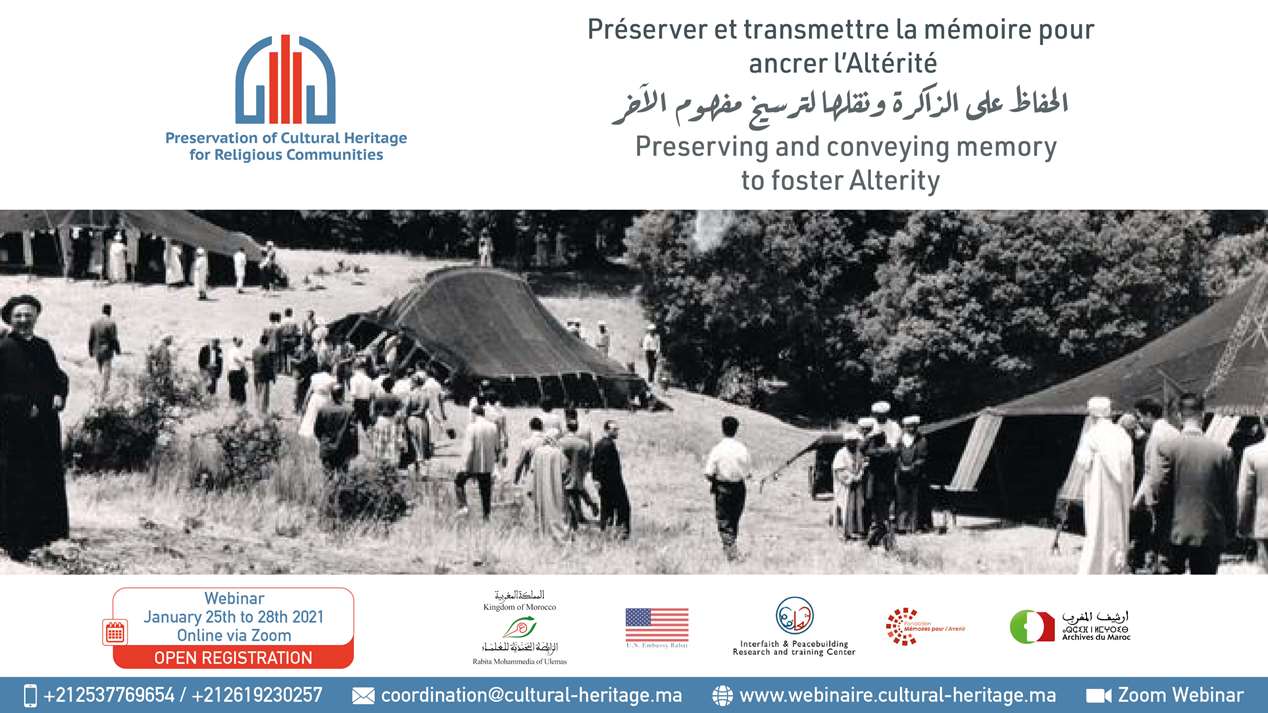Concept Note International Webinar January 2021
Concept Note

Through its Ta’aruf Center, the Rabita Mohammedia Al Ulema is reflecting on how to resolve a number of tensions which have ossified the dialogue between cultures and religions. The issues around memory – how to preserve it and pass it on to the next generations – seem to be a major challenge for our societies in terms of peacebuilding and encouraging open-mindedness to the notion of Alterity.
Given its mandate, the Ta’aruf Center (Rabita Mohammedia Al Ulema) is also concerned about the operational applications for easing these tensions. It remains attentive to efforts initiated by Morocco’s civil society in this field, and therefore wishes to involve the Fondation Mémoires pour l’Avenir ( FMA) and Archives du Maroc , who have since 2015 been involved in the « Reinventing Toumliline » project, aiming at reviving the memory of the « International Encounters ». These took place in the Toumliline Benedictine monastery from 1956 on, and provided the first space for ecumenical and inter-religious debate, citizenship training and dialog in Africa, which at that time was entering into the decolonization process.
Having identified a significant gap between how important an opening the “Toumliline International Encounters” (1956-1966) implied and the collective oblivion this experience has fallen into, the Ta’aruf Center has chosen to draw on this case study of the non-transmission of a story as the starting point for a general discussion about the role of memory as a key element to allow opening up to Alterity.
The Ta’aruf Center has been exploring the conditions in favor of and modalities for launching a constructive debate and training process based on recovering the narratives of thousands of people coming from diverse horizons, faiths, philosophies and political opinions who shared this experience over the years, in an eminently Christian site located in a plural Morocco whose identity has been “nourished and enriched by its African, Hebraic and Mediterranean influences [affluents]” .
The Rabita’s Ta’aruf Center, the Mémoires pour l’Avenir Foundation and Archives du Maroc, trust that such a pioneer interfaith initiative, a historically unprecedented experience in Africa nowadays sadly fallen dormant, may be an inspiring example to engage young people in search of landmarks. The partners in this project will, each in its area of competence, consult with young leaders, in order to identify contemporary challenges of concern to them which they might wish to confront with a view to reinvent a responsible civic dialog.
1-‘Memories for the Future’ Foundation
2- Archives or Morocco, public body
3- Preamble of the Moroccan Constitution, 2011

